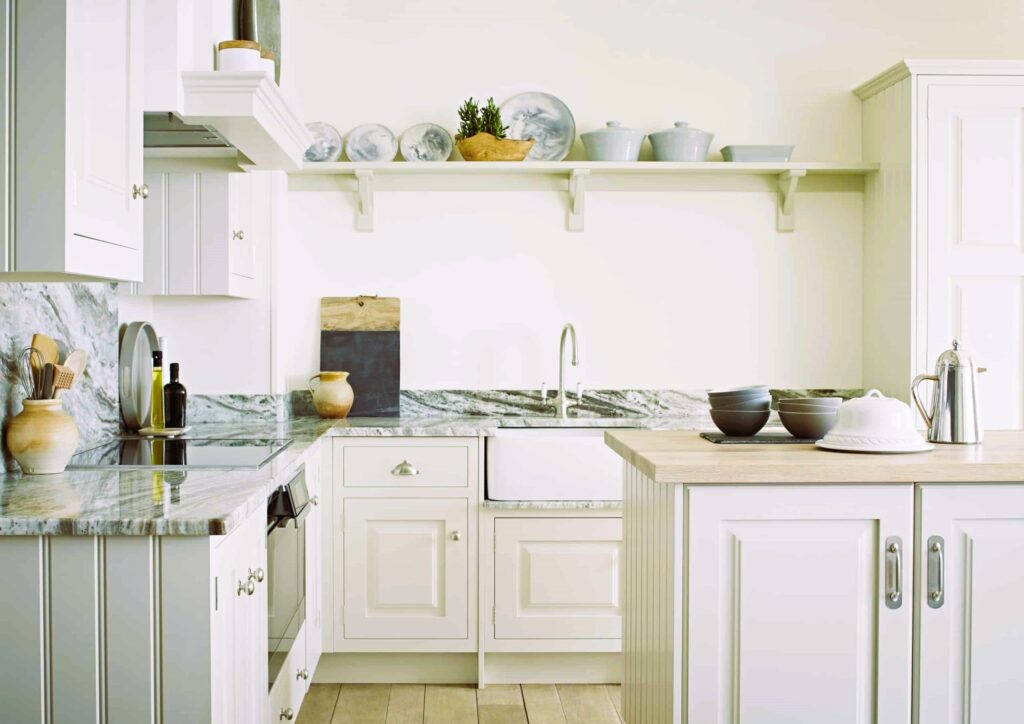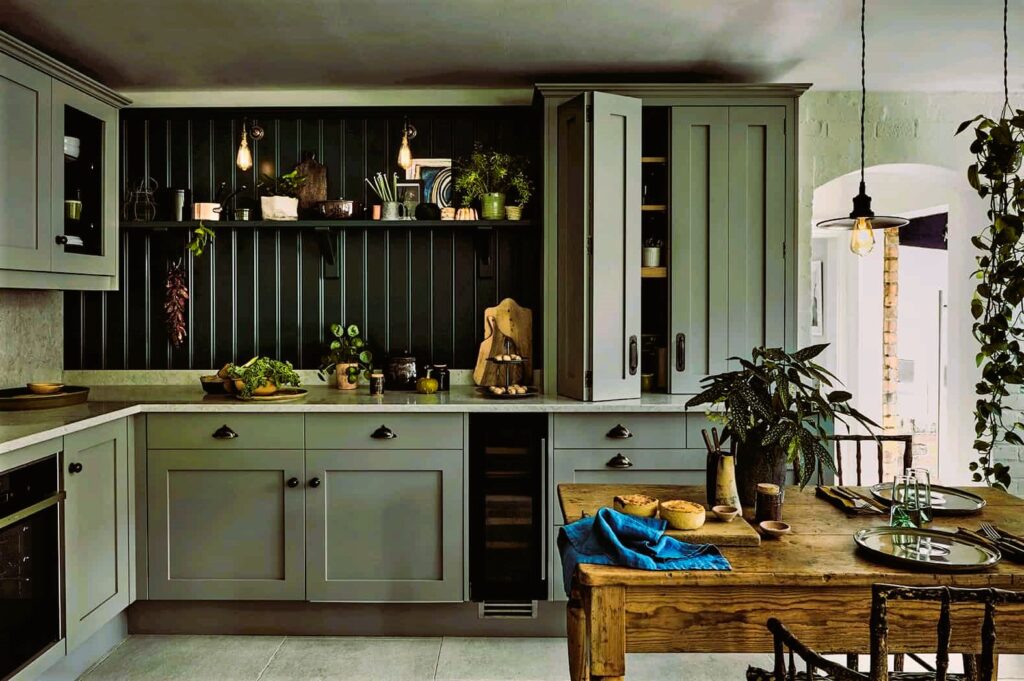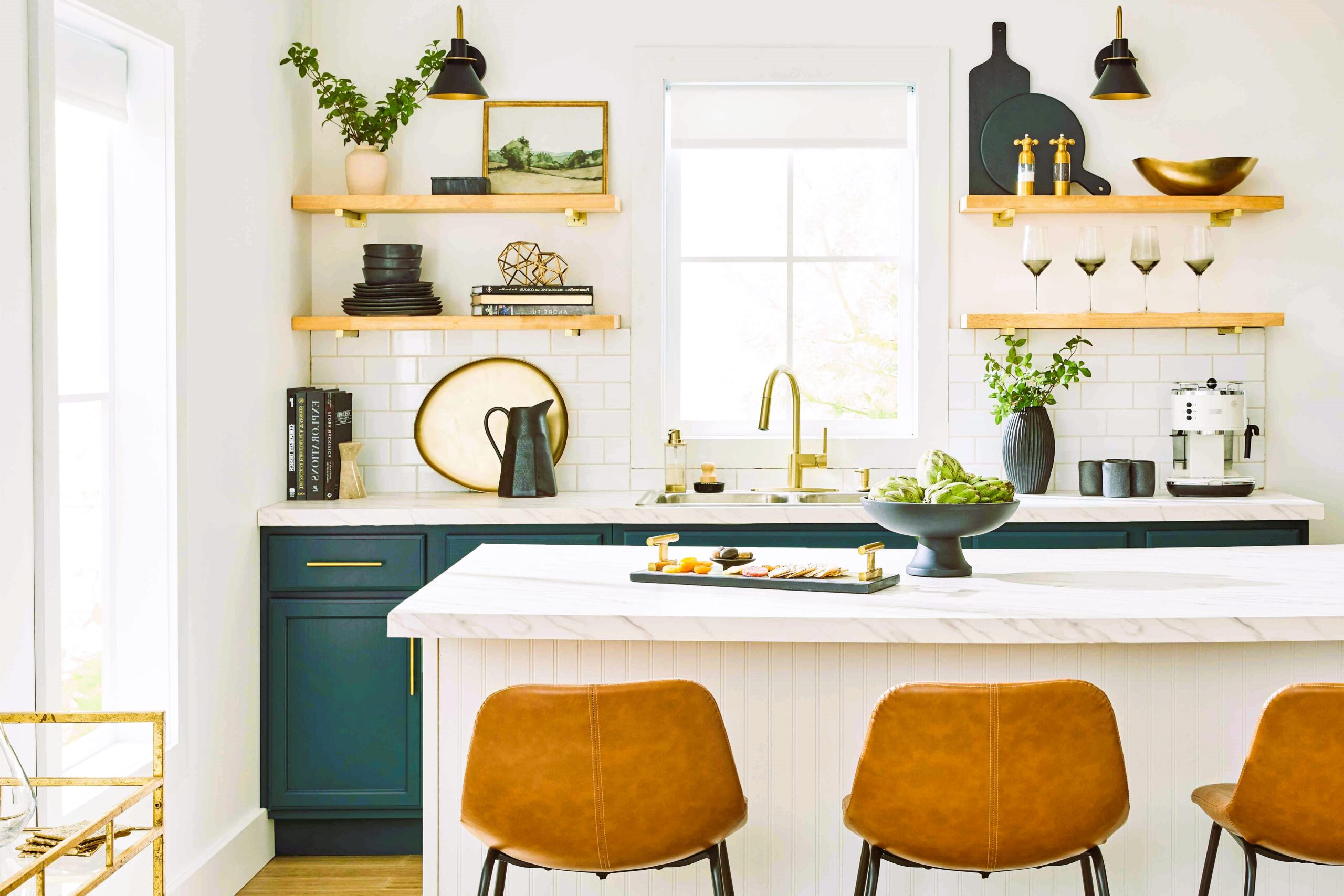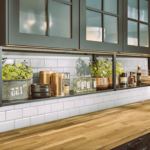Artisanal Touches: Handcrafted Elements in Modern Kitchen Design
Modern kitchen design has evolved to embrace a fusion of functionality and aesthetics, with an increasing emphasis on artisanal touches. The integration of handcrafted elements adds a unique and personalized dimension to contemporary kitchens. In this exploration of the trend, we delve into the significance of artisanal touches and how incorporating handcrafted elements elevates the design of modern kitchens.
1. Embracing the Artisanal Renaissance:
In a world where mass production often dominates, the resurgence of artisanal craftsmanship is a breath of fresh air. Artisanal touches in modern kitchen design signify a return to authentic, handcrafted techniques that celebrate the skill and creativity of artisans. From hand-painted tiles to custom woodwork, these elements infuse kitchens with character and individuality.
2. Handcrafted Cabinetry: Elevating luxury-kitchens:

Custom Woodwork: One of the defining features of artisanal kitchens is custom woodwork. Artisans craft bespoke cabinetry using high-quality woods, incorporating intricate detailing, and showcasing the natural beauty of the materials. This creates a warm and inviting atmosphere, making the kitchen a true focal point of the home.
Hand-Painted Finishes: For a touch of artistry, hand-painted finishes on cabinetry bring unique patterns, textures, and colors into the kitchen. Artisans can create bespoke designs that align with the homeowner’s style, adding a personalized touch that cannot be replicated by mass-produced alternatives.
3. Artisanal Backsplashes: Creating Visual Interest:
Handmade Tiles: Artisanal kitchens often feature handmade tiles for backsplashes. Crafted by skilled potters, these tiles bring a tactile and imperfect beauty to the kitchen. Each tile tells a story, showcasing the marks of the artisan’s hands and adding an element of authenticity to the space.
Mosaic Patterns: Mosaic patterns, whether crafted from glass, ceramic, or stone, offer another artisanal option for creating visually striking backsplashes. Artisans can assemble intricate designs, adding a layer of sophistication and personality to the kitchen. Did you like the article? Read also about the role of kitchen islands.
4. Hand-Forged Hardware: Small Details, Big Impact:
Custom Handles and Knobs: Artisanal kitchens pay attention to even the smallest details. Hand-forged handles and knobs for cabinets and drawers contribute to a cohesive design theme. Crafted from materials such as iron, brass, or copper, these bespoke elements add a touch of luxury and individuality.
Forged Faucets: Extend the hand-forged aesthetic to faucets and fixtures. Artisan-crafted faucets often feature unique designs and finishes, turning everyday functional items into works of art. These distinctive elements become focal points in the kitchen, showcasing the artisan’s skill.
5. Bespoke Lighting Fixtures: Illuminating Craftsmanship:
Hand-Blown Glass Pendants: Custom lighting fixtures, particularly hand-blown glass pendants, add a layer of sophistication to artisanal kitchens. The organic shapes and imperfections in hand-blown glass create a dynamic interplay of light and shadow, enhancing the overall ambiance.
Forged Metal Chandeliers: For larger spaces, artisanal kitchens may feature forged metal chandeliers. Crafted by skilled metalworkers, these chandeliers become functional sculptures that provide both illumination and a sense of artistic expression.
6. Integrating Artisanal Furniture: A Culinary Symphony:
Handcrafted Dining Tables: Extend the artisanal touch beyond the kitchen island by incorporating a handcrafted dining table. Crafted from reclaimed or sustainably sourced wood, these tables become a central gathering point, merging functionality with artistic design.
Custom Seating: Artisanal kitchens often feature custom seating options, such as hand-stitched leather barstools or wooden benches with hand-carved details. These elements contribute to the overall warmth and character of the space.
7. Collaborating with Local Artisans: Supporting Craftsmanship:
Local Ceramicists and Potters: Collaborating with local artisans, such as ceramicists and potters, allows homeowners to infuse their kitchens with region-specific craftsmanship. Handcrafted ceramics, from dinnerware to decorative pieces, add a personal touch while supporting local artists.
Cabinetmakers and Woodworkers: Engaging local cabinetmakers and woodworkers not only ensures the use of sustainably sourced materials but also fosters a sense of community. Local artisans can bring their expertise to create one-of-a-kind pieces tailored to the homeowner’s vision.
8. Sustainability in Artisanal Practices: A Harmonious Blend:

Reclaimed Materials: Artisanal kitchens often incorporate reclaimed materials, contributing to sustainability. Reclaimed wood for cabinetry or recycled metals for hardware align with the eco-conscious ethos of modern design, creating spaces that are both beautiful and environmentally responsible.
Conclusion: The Art of Craftsmanship in Modern Kitchens
Artisanal touches in modern kitchen design represent a marriage of tradition and innovation, celebrating the timeless artistry of skilled craftsmen. From handcrafted cabinetry to bespoke lighting fixtures, each element contributes to a narrative of craftsmanship that transforms the kitchen into a space of both function and beauty.
For more insights into the intersection of craftsmanship and modern design, explore resources on Canada.ca. These platforms offer valuable information on design standards and trends, ensuring that your artisanal kitchen aligns with the highest benchmarks of quality and creativity. As we continue to embrace the artisanal renaissance, our kitchens become not just places of culinary creation but also showcases of human ingenuity and artistry.





